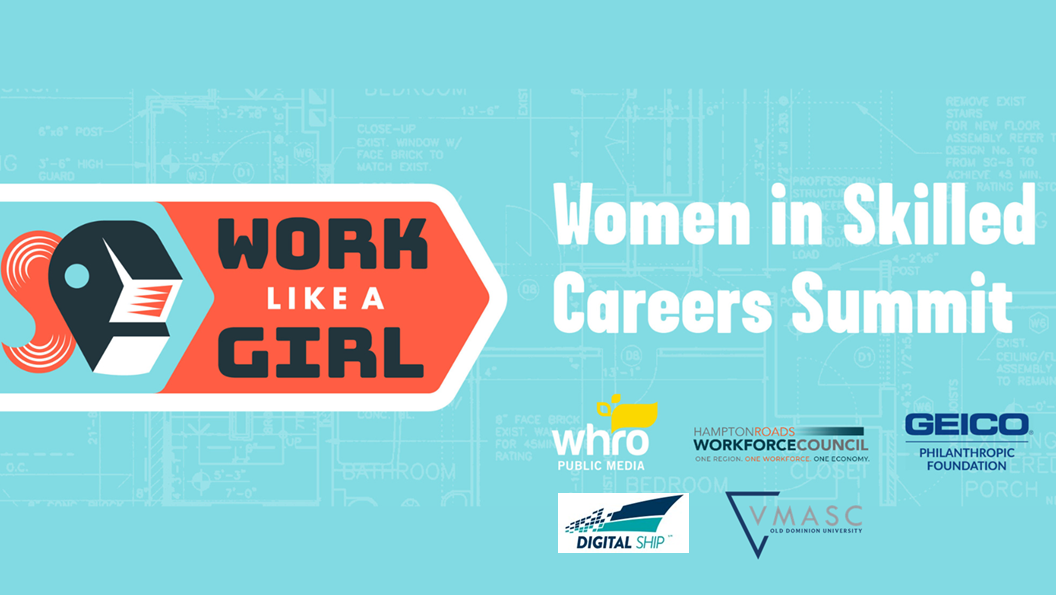
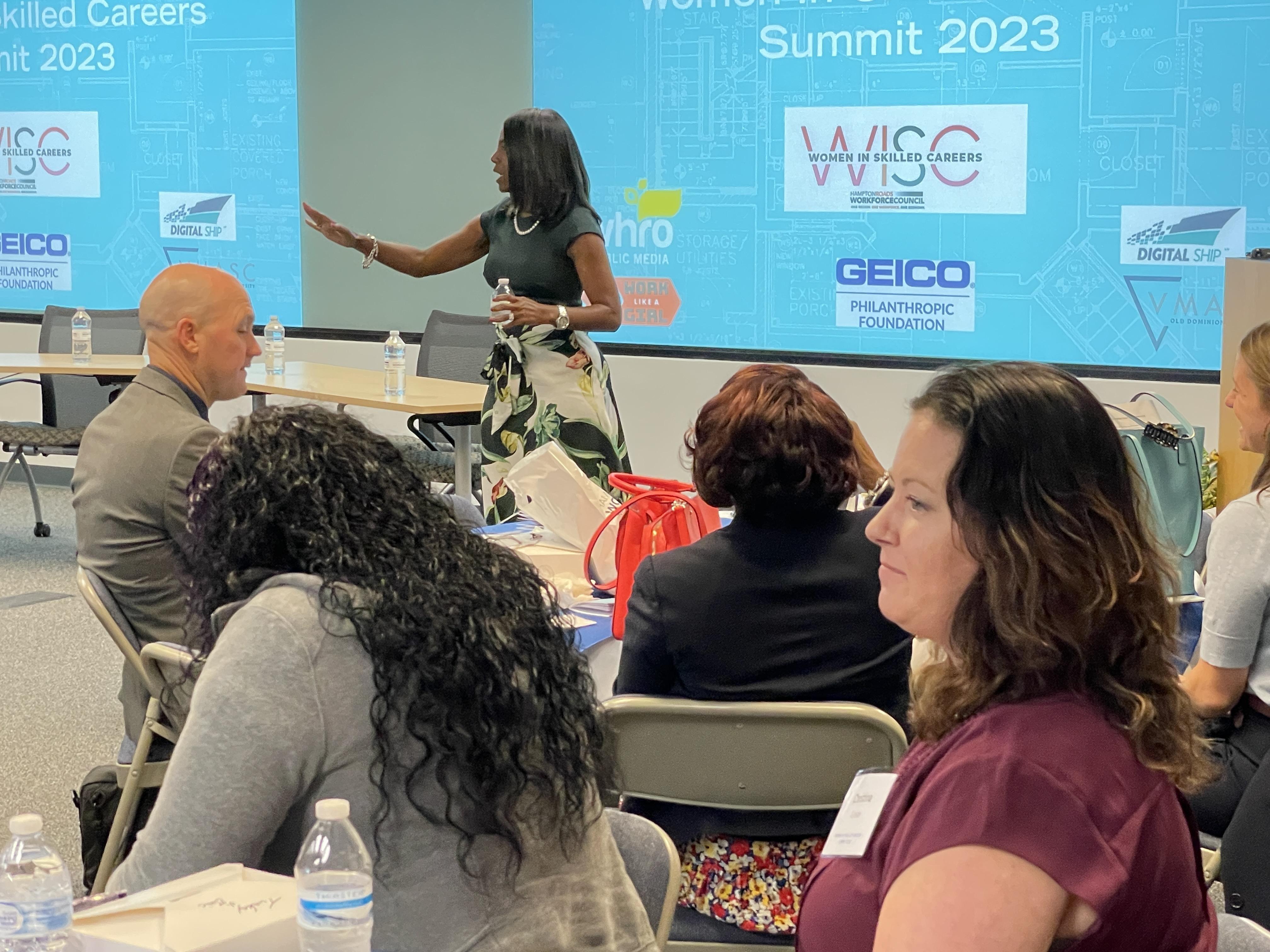
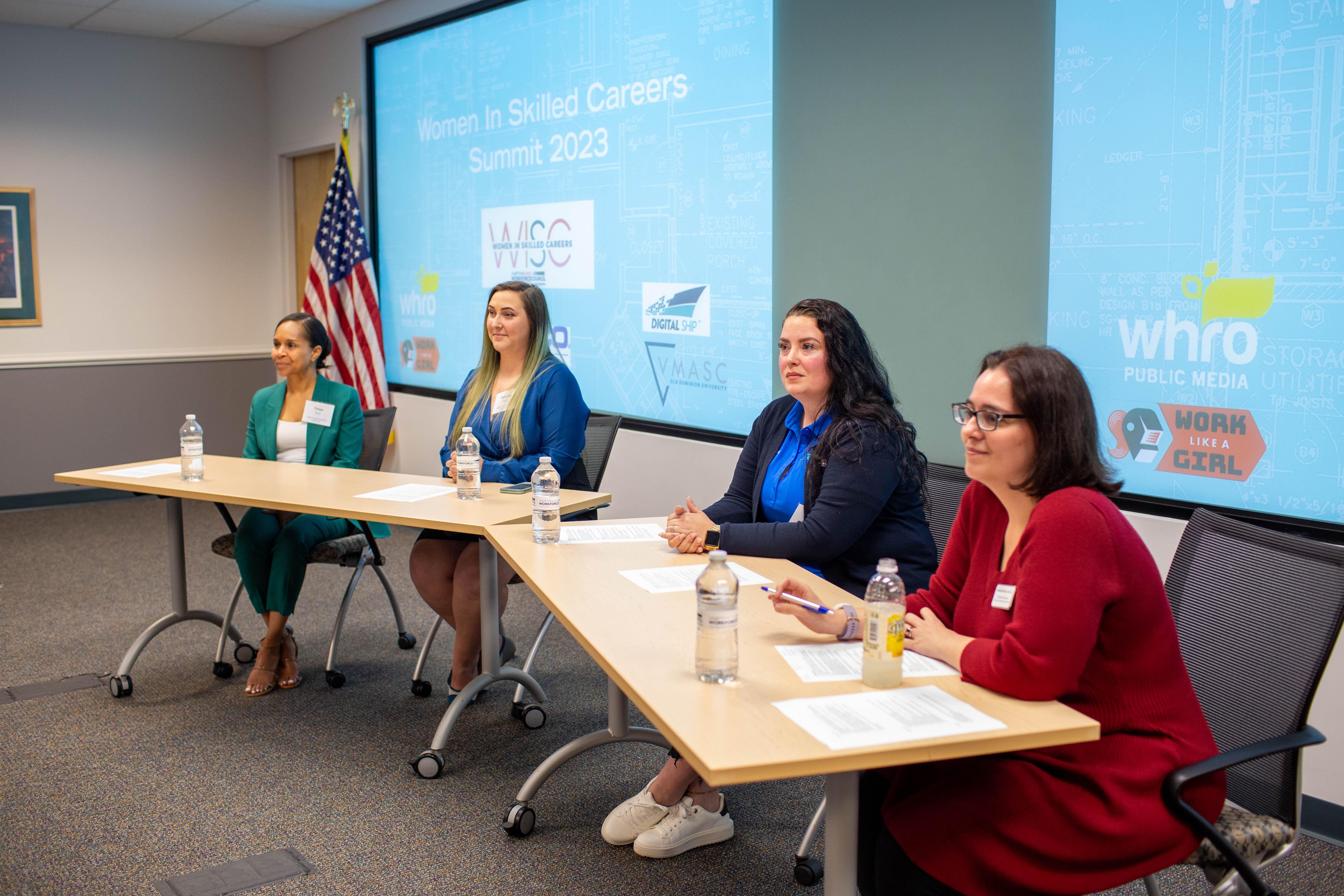
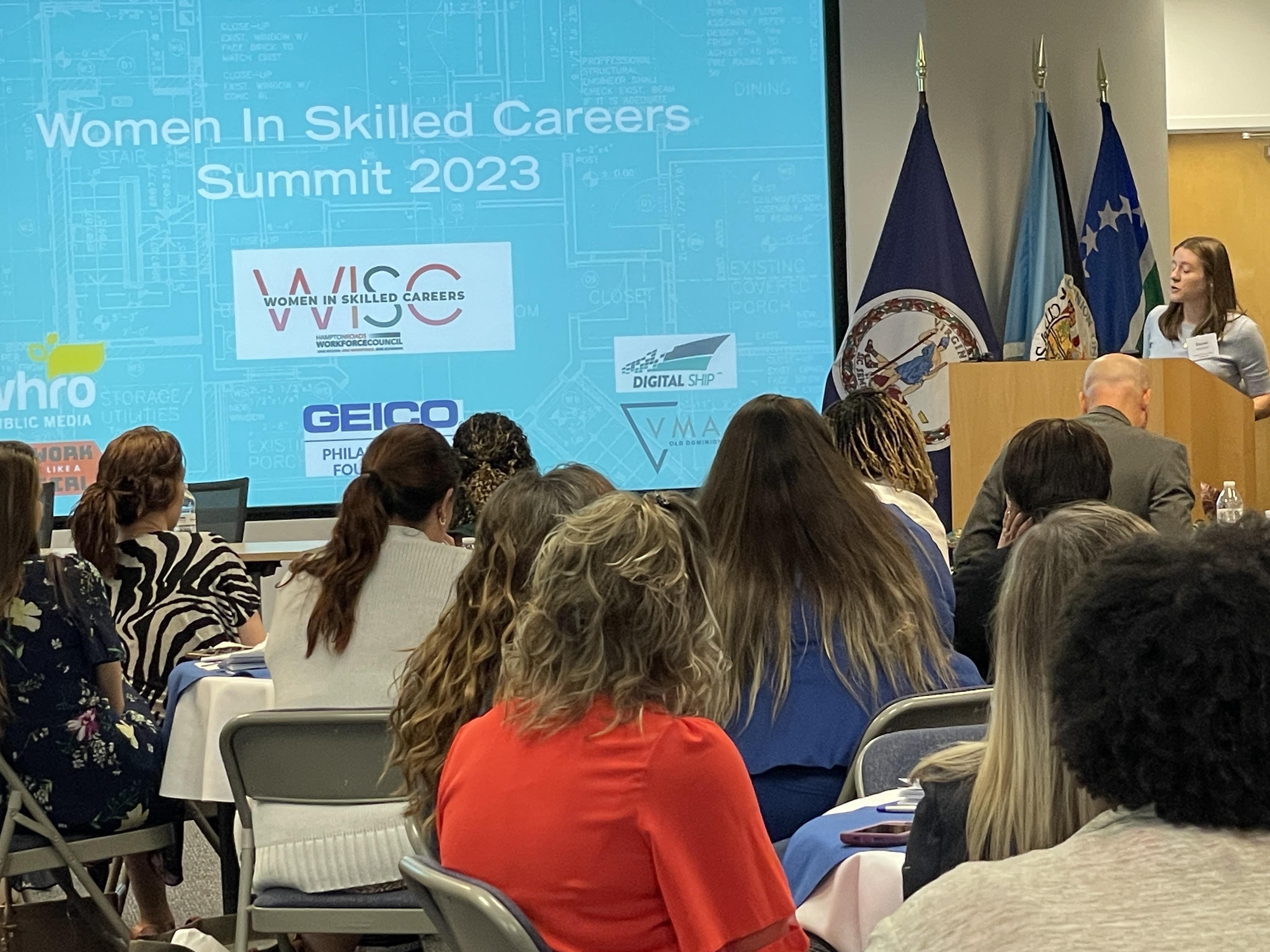
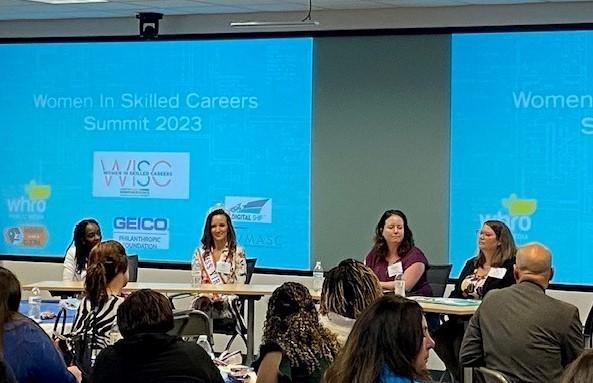
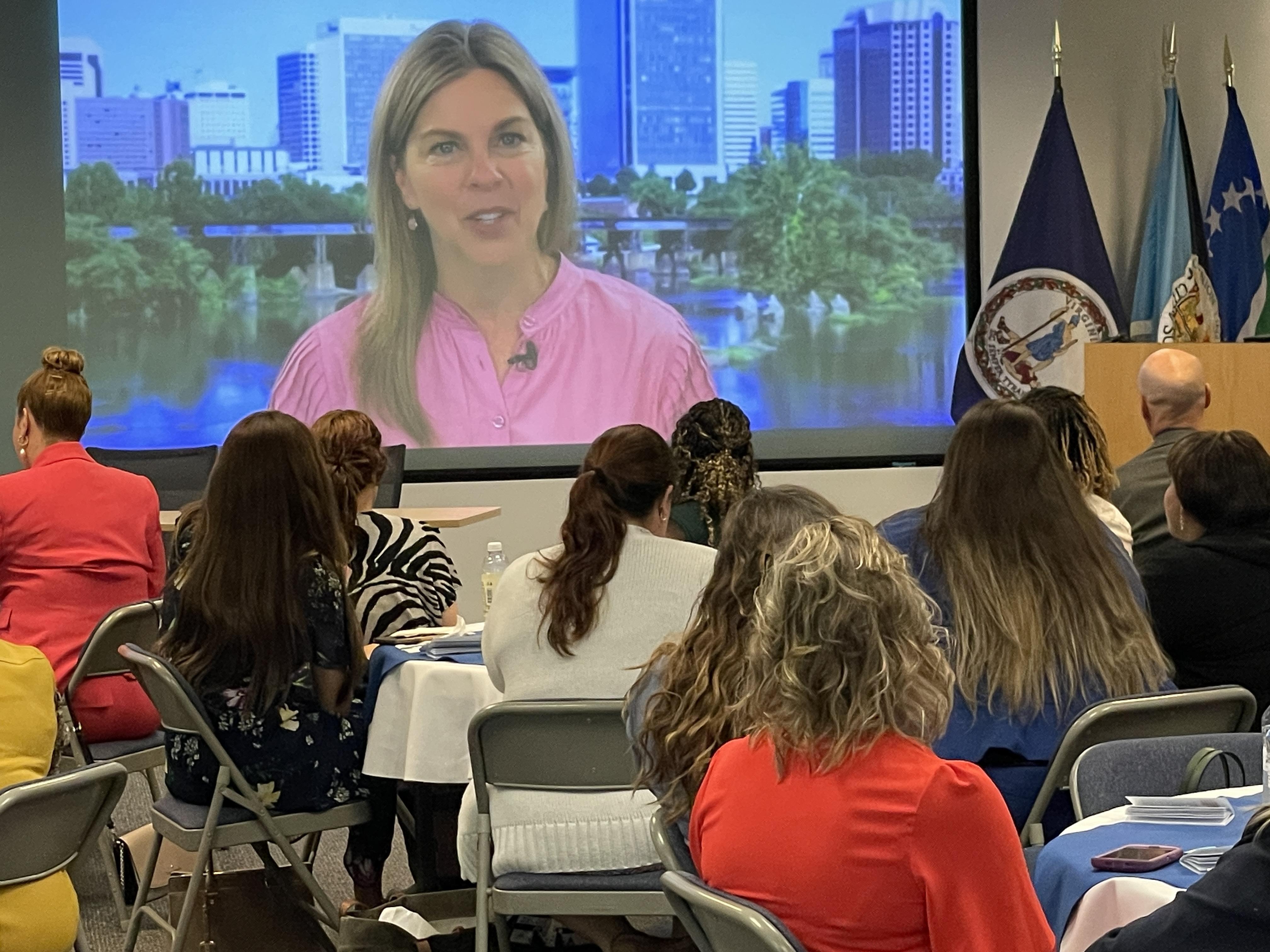
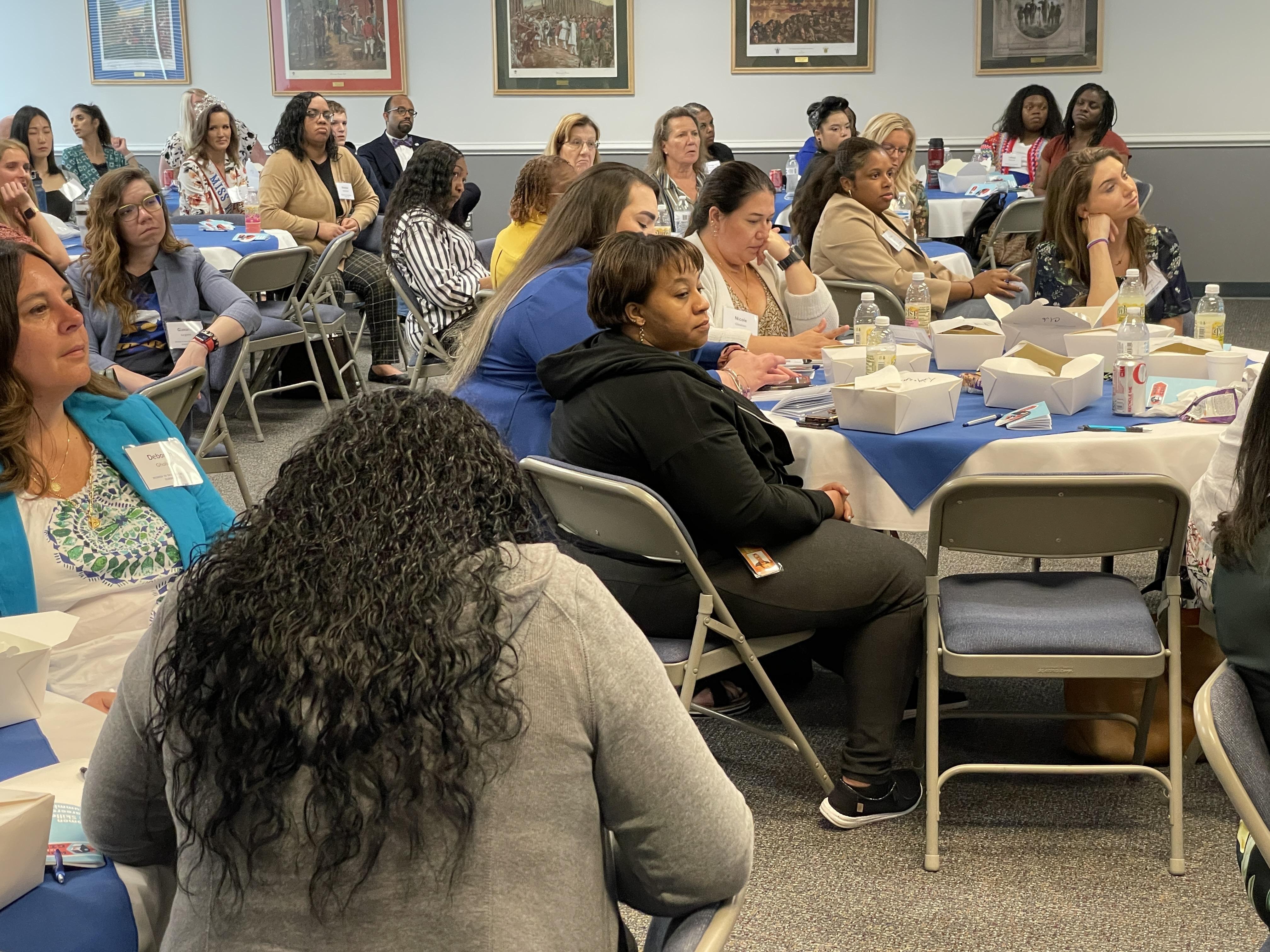
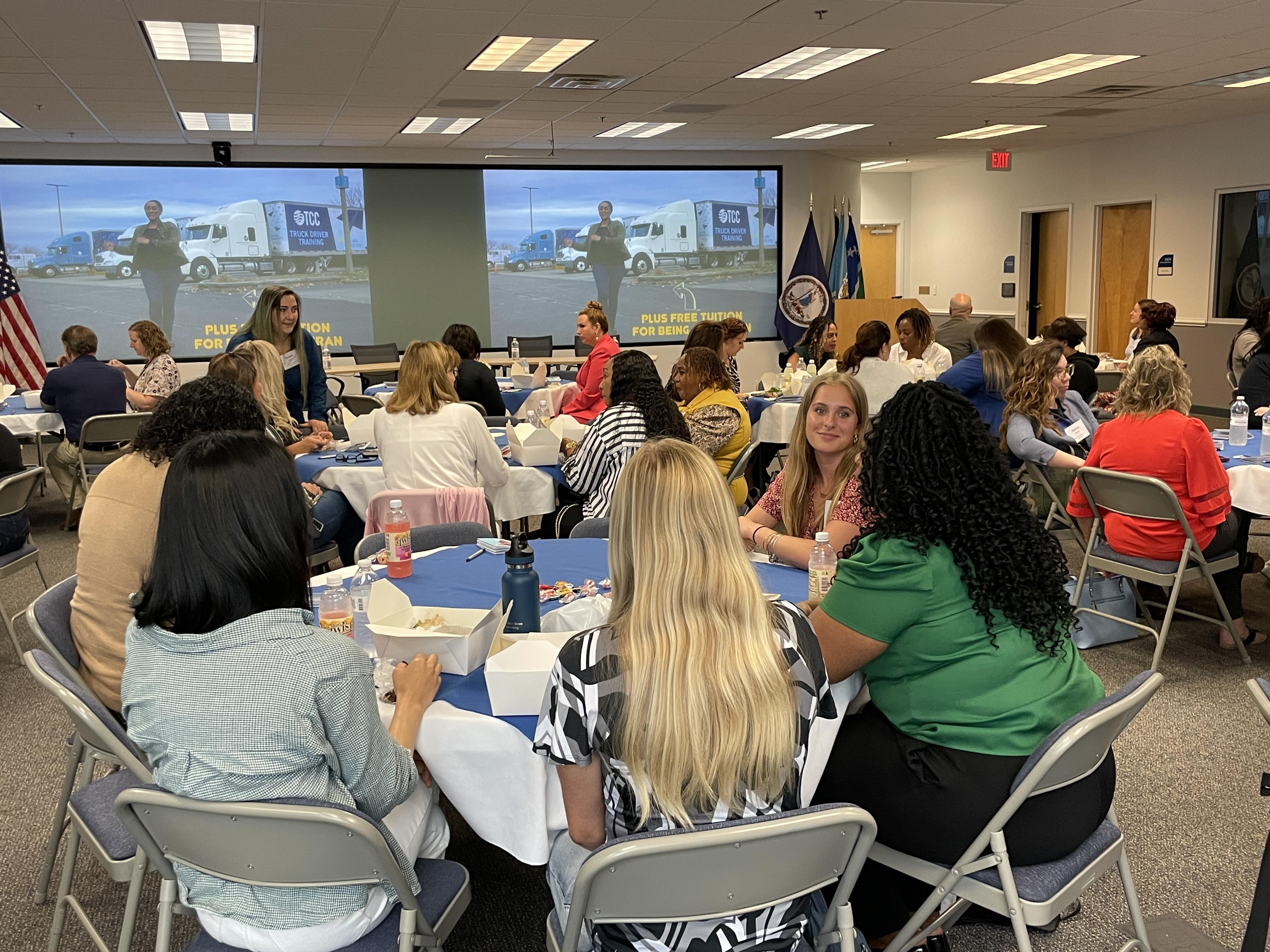
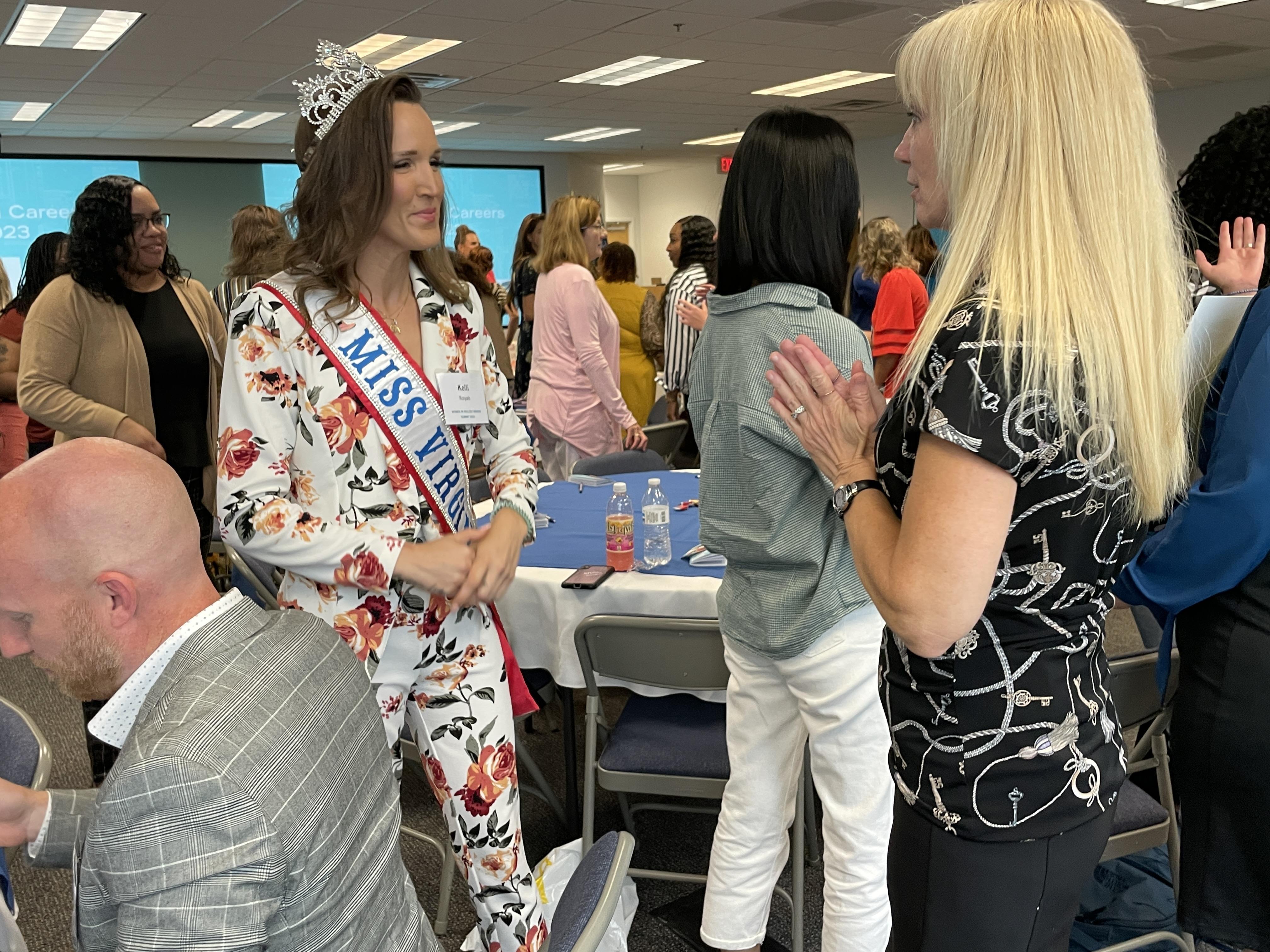
THANK YOU EVERYONE WHO PARTICIPATED!
It was an amazing day!
We want your feedback. Be on the lookout for a brief survey!
Hampton Roads Workforce Council, WHRO Public Media,
ODU's Virginia Modeling Analysis and Simulation Center,
and GEICO Philanthropic Foundation hosted the inaugural
2023 Women in Skilled Careers Summit
June 8, 2023 12:00 to 5:00
Hosted by Old Dominion University
Virginia Modeling, Analysis, and Simulation Center
1030 University Blvd, Suffolk, VA 23435
Video remarks from the First Lady of Virginia,
Suzanne S. Youngkin
Opening remarks from Eleanor Delamater,
Women's Bureau, Department of Labor
Keynote: Dr. Letitia D. McCane
Director of Education for The Apprentice School,
Newport News Shipbuilding
Women have shared they struggle in their jobs due to workplace cultures predominantly composed of, supporting, and promoting men. The summit will explore these issues and discuss strategies that could improve the gender divide in Virginia’s workforce participation rates. The WISC program, in conjunction with WHRO’s “Work Like A Girl” conversation series, will engage community members to help identify solutions that support a successful working culture for women in local industries. Join us!
This summit featured community conversations focused on creating awareness of the challenges that women face while enrolling in trade programs and working in skilled careers.
The need for WISC:
In Virginia, nearly 95,000 women ages 25-34 are out-of-work as a result of various structural barriers and societal norms. Systemic challenges are limiting working women’s access to affordable childcare or eldercare, transportation, flexible work hours for parents of young children, and gender equity in the workplace.
Although approximately 62% of Virginia’s trade professions are struggling to fill open positions, women make up only 2% of the maritime workforce (Source: Women Seafarers, 2019). Only 25% of the technical trades’ workforce is comprised of women, with even fewer (22%) in leadership positions. The relatively small number of women working in trade professions makes them more vulnerable to different forms of discrimination, such as limitations to training, lower pay compared to their male counterparts, restrictions of facility or equipment usage, and sexual harassment or abuse while at sea (Source: Women Seafarers, 2019).
Schedule
12:00 Registration and Networking
12:30 Summit Welcome-Lunch
1:00 Keynote Speaker
1:20 Break/Networking
1:30 Panel discussion #1
2:15 Break/Networking
2:25 Panel discussion #2
3:10 Break/Networking/Transition
3:25 Breakout groups discussions
4:10 Report back-Solutions
4:45 Close

More about the HRWC and WHRO Public Media partnership:
The HRWC is leading the Commonwealth of Virginia in increasing workforce participation. In partnership with WHRO, the HRWC launched the first iteration of the WISC program in 2019 as a barrier-breaking initiative to address the challenges that women face when entering or remaining in the workforce, especially in skilled careers. WHRO’s “Work Like a Girl” program led focus groups of local tradeswomen to explore the challenges that women often face in the skilled trades. These focus groups revealed that Hampton Roads’ available childcare and transportation options are vastly insufficient to support the needs of working women. The region critically requires augmented supports for working families, as well as further exploration of gender inequity within the workplace, in order to foster equitable, sustainable, and inclusive economic growth in Hampton Roads.

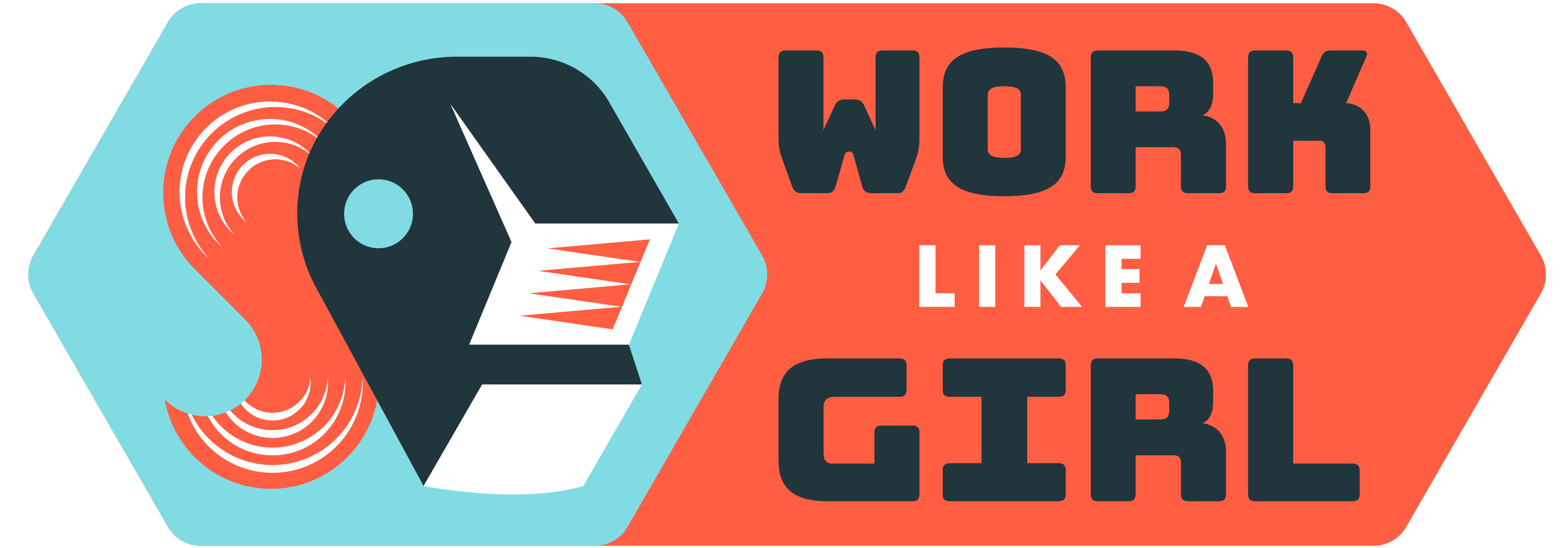
Watch Now: Talking Welding With Pierrette Swan
Interested in learning about working in skilled careers? Check out our interview with a local welder.
We spoke with Pierrette Swan, a local welder and a WHRO Work Like A Girl ambassador to hear her firsthand account of how she chose this exciting field. If you missed the interview on Facebook Live, watch the recording here.
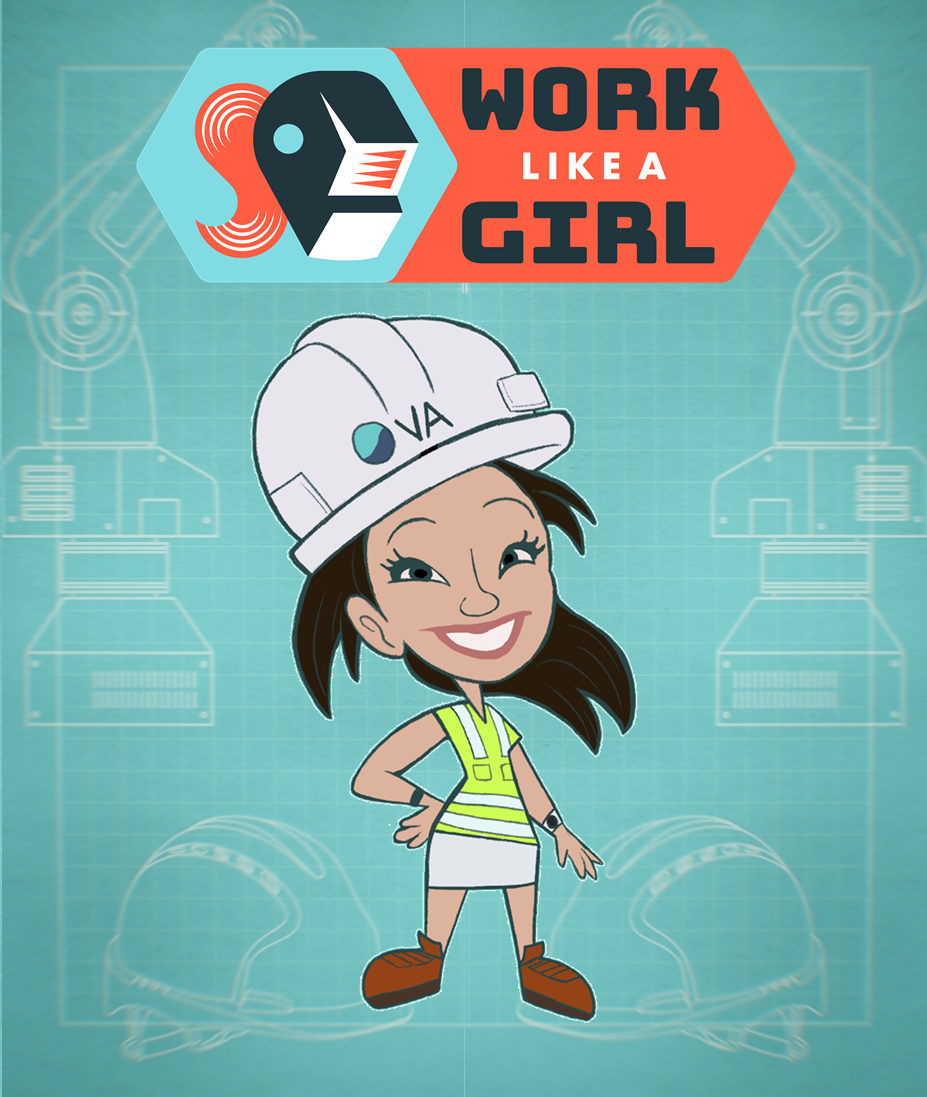
HEY GIRLS!
I'm Leena!
I have a great job in a skilled career!
There are a lot of great jobs for women and I'm here to help you learn about them.
Start with checking out the videos below.
My video is awesome

Click here to see how Leena Works Like A Girl
Click here to see more videos of great jobs for Girls.
Skilled Careers Offer Women Better Opportunities
- Income equality - Pay is based on experience, not gender.
- Paid training - Training often includes paid apprenticeships in which you earn while you learn.
- Affordable training programs - This means less, or zero, debt compared to a four-year degree.
- Get to work quickly - Many training programs take two years or less.
- In-demand positions - There are shortages of skilled trade workers, and women are in high demand for these jobs.
How Do You Work Like a Girl?
WHRO Public Media recently asked a group of young women what Work Like A Girl meant to them, and they had a lot to say.
- Time to take charge
- Lead
- Work hard
- Step up
- Showing a man what a girl can do
- Confidence
- Go for it
- Working smart
- Women are strong
- Can do the same job as men
How do we help guide young women into these great careers? Parents, guardians, friends, guidance counselors, and women in these careers can help educate young women about these jobs.
- Spread the word that is it great for their future to Work Like A Girl!
- Check out our Resources page.
Related Articles
Are we about to see a mass exodus of female workers?
“..approximately 60% of the jobs eliminated in the first wave of pandemic-induced layoffs were held by women.”
Why unemployment fueled by pandemic is hitting women harder than men
"More than 36 million Americans lost their jobs since the pandemic began. Experts say women have born the brunt of job losses because the industries that were hardest hit are 'hugely dominated by women': leisure and hospitality, retail, education and health services."
Despite record job gains in June, new data shows that women are still being left behind
“Since the pandemic has hit, women have lost the majority of the jobs that the economy has shed, and that is still the case even after the gains we saw last month,” Emily Martin, vice president for education and workplace justice at NWLC tells CNBC Make It. “It’s partly because of the industries the pandemic has hit like leisure and hospitality, retail, and state and government jobs. Those are industries where women are the majority of workers.”
Resource for Young Girls
Highlighting the value of skilled careers for young girls, and having role models for them, has been a challenge as these are jobs typically dominated by men. Hampton Roads welder, mom, and star of one of WHRO's Career Pathway's Videos, Kelli Gilliam, is leading the way locally. She has written a book for girls about becoming a welder: Willow Discovers Welding.
Willow Discovers is a series in which a curious young girl gets to experience the many facets of manufacturing. The true story of my daughter, Laila, being curious about my work was the inspiration to create a way for young children to go on adventures with Willow exploring how things are made and how they work, as well as, learning to read. As a female first in the welding industry, I believe this series can be a place for children to create, innovate, and explore manufacturing industries.
Available at your favorite bookseller.
Work Like A Girl is part of WHRO’s American Graduate: Getting to Work national initiative, funded by Corporation for Public Broadcasting, to create awareness of the great opportunities for young women in skilled careers. These are careers that, when you think of them, you usually think of a man in the job such as electricians, welders, and truckers. However, they are rewarding well-paying jobs for women and we need to let them know about them for many reasons. For young women with a high school diploma, and without additional training or secondary education, the main jobs available to them are mostly low paying jobs such as retail, childcare, and hospitality. These types of hourly jobs do not provide a sustainable wage for a family, or a long term career. And, how much work that is available can be heavily influenced by the seasons or the region’s economic situation.